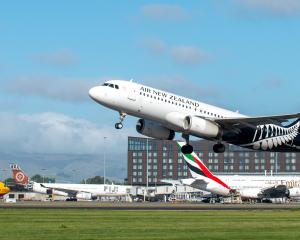
Fisheries Minister Stuart Nash made the announcement on Wednesday.
Chinese distributors’ order cancellations because of the issues around the novel coronavirus meant up to 180 tonnes of live rock lobster were in limbo in New Zealand.
The fish were being kept in pots and tanks at sea and on land.
Last week exporters held discussions with the Government to find ways to reduce the financial impact of the Chinese market’s sudden closure.
"I have agreed that fisheries officials can allow a limited release of rock lobster back into the wild," Mr Nash said.
"The decision will affect the live crayfish in holding pots at sea, and some held in tanks on land. It means they can be harvested again when the trade disruptions are resolved."
The decision will come as a relief to exporters such as Fiordland Lobster Company, New Zealand’s biggest exporter of crayfish.
Chinese people had not been able to go out and enjoy Chinese New Year celebrations because of the need to minimise health risks, Mr Nash said.
"Exporters from New Zealand and other countries traditionally sell large numbers of rock lobster into China during this period, but most orders have been cancelled."
The minister said he had to balance a number of concerns, including the impact on the health and sustainability of crayfish populations as well as wider issues in biosecurity and the marine environment.
"Not all rock lobster held in tanks on land will be able to be returned to the sea," he said.
"Where lobster from different sources have been brought together at processing facilities, officials will consider their release on a case-by-case basis.
"In doing this they will consider potential implications for biosecurity and sustainability."
The minister encouraged exporters to look to other markets, such as Malaysia, Singapore, the United Arab Emirates and Japan, for crayfish not able to be returned to sea.
The domestic market was also an option for exporters, but there were concerns it could be oversupplied as it was a lot smaller than China.
Crayfish was still being sold for $35 a fish at Harbour Fish in Dunedin and Queenstown.
Mr Nash said there were strict rules to ensure returned crayfish were likely to survive and that the environment they were released to was also protected.
"Anyone who wishes to release live crayfish will need to provide information to Fisheries New Zealand, and Fishery officers will monitor the return of crayfish to the sea.
"Officials will contact those affected with advice on what they need to do."
He said it was an evolving situation and that Fisheries New Zealand would keep a close watch on it.
The minister was also considering allowing catch quotas that might not be reached by March 31 to be carried over and included in next year’s entitlements.
"This will take more time to finalise and I will discuss it further with government colleagues," Mr Nash said.











